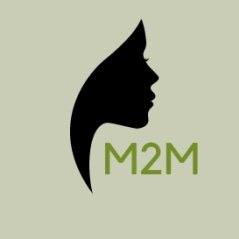Burnout has been an undeserved badge of honor within many Western job settings. People are seen as dedicated when they work an extraordinary amount of hours for a job that takes advantage of them, doesn't fairly compensate them, and gives them "kudos" while sucking their life out of them.
What is Burnout?
Burnout is tricky. We see its pernicious effects within the lives of those close to us, but we often fail to recognize it within ourselves. Symptoms of burn out can range from exhaustion, to lack of clear thinking, to the emotional impact of becoming weepy or angry. The World Health Organization defines burnout as a "syndrome conceptualized as resulting from chronic workplace stress that has not been successfully managed." It further explains it as having three dimensions:
feelings of energy depletion or exhaustion;
increased mental distance from one’s job, or feelings of negativism or cynicism related to one's job; and
reduced professional efficacy.
Perhaps what we under-estimate is the potential for long-term effects, and the ability of burnout to actually substantially create co-morbidities, and premature death within Black women. That is because we deal with the intersectional issues of racialized stress, gendered stress and a host of other intersectional levels of stress and struggle. According to BMC Psychology, long-term effects after treatment can include,
"... extreme fatigue, sleep disturbances, problems with concentration, problems with memory and reduced stress tolerance, were rated with single item questions. A subgroup of patients (n = 163) participated in a clinical assessment to confirm residual stress-related exhaustion not caused by other diseases." Weathering can kill us. According to Medical News Today, weathering creates early health deterioration. I became particularly aware of this through a Tweet, several month ago, when a startling question was asked: "Why are so many Black women academics losing their back teeth?" The notion that Black women have unacknowledged stress related to their roles as academics was intriguing to me.
Where Do We Get the Term “Weathering” From?
The term “weathering” was coined in 1992 Trusted Source by Dr. Arline Geronimus, at the time a researcher in the Department of Public Health Policy and Administration at the University of Michigan in Ann Arbor.
Dr. Arline Geronimus explained the term as being similar to playing Jenga. You pull out one piece and another until the whole structure collapses. This is what we endure as Black women. We pull out pieces through the extraordinary work we do. We pull out pieces of ourselves by weathering the rejections that seem to consistently say our work is devalued. Pieces are pulled out by the demands made upon our lives - until we literally collapse under the strain of being Black and woman.
Currently, Dr. Geronimus is a professor in the Health Behavior and Health Education department of the same university. I think that there are also cultural considerations that we must finally address. Our White colleagues are often given the grace to burnout, breakdown and get themselves together. Yet, many of us do not see that as possible for ourselves as Black women. If we take care of ourselves, our elder parents will have no one, or our children will suffer, or our sick partners will not survive - so we "push through" until we, ourselves, cannot survive.
What Happens When Black Women Surrender Their Burnout?
But, what happens when Black women surrender their burnout because ‘survival’ is no longer enough? What happens when we relinquish our badge of honor and decide we will reposition ourselves so that we can prioritize whatever we believe is most important for us such as our health, our families, or our own dreams? What does it take to figure out those priorities, and can we forgive ourselves for getting off that academic treadmill of research and writing, publishing, teaching, speaking at conferences, grant capture, committee work - many of these requirements being unpaid.
This is a particularly dangerous phenomenon for Black women in Religious Academia. Since we consistently number at around 1-2% of those who are full-time paid religious scholars, we find ourselves fighting, tooth and nail, to either get that post or to survive on the margins.
Making a Change
If you are a Black woman who has been holding onto this pain as part of your badge of honor, consider whether or not this is all that you have available to you. Begin thinking of alternatives. Perhaps your best contributions are as an independent scholar instead of sitting in committee meetings. Maybe your gifts will blossom more fully in a think tank, or a foundation which shares the goals you work toward as an academic. Or perhaps you just need to advocate for yourself where you are.
Whatever choice you make, I encourage you to surrender the burnout badge and consider what self care looks like for you going forward. Your contribution can be made in a variety of ways. I urge you to consider the best ways you can make those contributions to your own health and well being, and to your family and community more widely. The burnout badge eventually encourages us to risk giving more than we can safely give. That is a risk we cannot afford to take!
Dr. CL Nash
Misogynoir to Mishpat (M2M) Research Network © 2023






